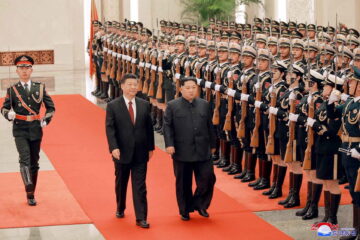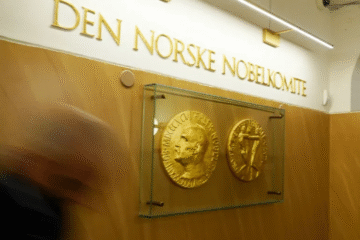The Role of States in MARKETS’ Development
What you want to understand… 🤔
- What role did states play in the emergence of markets?
- How and why does capitalism push for state non-intervention?
- Is states’ complete withdrawal from economic affairs desirable?
- Are states necessary for markets’ survival?
During the Enlightenment period, the French physiocrats promoted laissez-faire economics which were based on the idea that private transactions should be free from economic interventions especially from the state. This notion was developed by Adam Smith in “The Wealth of Nations” (1776) and was formulated under the name of the Invisible Hand. According to this concept, people are selfish and seek to maximise their benefits and as a result everyone’s needs will be naturally met by others’ work. Therefore, one’s selfishness serves the common interest. As Richard Swedberg explained it in 2000, Max Webber’s conception of the market is based on two types of interactions: exchange and competition.
According to Thomas Hobbes, states were created through social contracts in order to ensure security to their citizens. States appeared in reaction to the state of nature in which people were free and sovereign but their rights were not worth anything since they were in competition with others’ rights. Consequently, people came together and agreed to cede some of their rights so that others would do the same. From this social contract, a state ensues. It gets the monopoly of the legitimate use of physical force because people have surrendered their sovereignty. Here, we use the theory of social contract developed by Thomas Hobbes in his book “The Leviathan” (1651).
There is thus an apparent contradiction between states’ inherent propensity to intervene and market exchanges that are self-sufficient and based on the Invisible Hand. Indeed, states bring regulations and thereby hinder the natural action of the Invisible Hand. We will analyse the impact of states’ actions on markets i.e. on exchange and competition between economic actors. That’s why we will ask ourselves: Do states matter for market exchange?
First of all, we will see that markets were almost non-existent and that states made them grow, especially under the ruling of emperors. Then, we will dwell on the Industrial Revolution period and the emergence of capitalism that saw a partial withdrawal of states from economic activities. Eventually, we will study why state interventionism is necessary for ensuring the survival of markets and their expansion.
I. States’ major role in the emergence of markets
In the state of nature, markets were almost non-existent because men could not risk relying on others for necessary goods or services related to their survival. Indeed, men were free and sovereign, there was no division of labour and no one was legitimate enough to enforce contracts. Therefore, exchanges were unsecure and didn’t happen often, unless it was for non-essential goods or services. States were required in order to uphold agreements and make market exchanges expand. As a matter of fact, states are necessary so as to establish trust in economic interactions. For instance, they can uphold private property rights and thus foster exchanges. Indeed, men can no longer steal and declare the fruit of their misdeed as their property. In order to get the ownership of what they want, they have to resort to an exchange that takes place on markets. States’ emergence also enforced an equality of exchange by controlling the means of measurement for the value of goods. By making citizens accept a currency, states endeavoured to make markets work properly and “fairly”.
As we just said, markets could develop themselves with the emergence of a political authority. This authority took first the form of city-states and empires. The latter sought to expand worldwide by conquering new territories and inter-connecting them. As a result, trade was fostered and could expand. States’ role at this time was to provide transport infrastructures and security to merchants in order to help markets thrive. For instance, from the 2nd century BCE to the 15th century, merchants considerably used Silk Roads that linked China with Europe. Besides, states had to secure trade routes and provide guarantees to trade partners. In fact, their reputation was of paramount importance when seeking to promote long-distance trade. Furthermore, sometimes market expansion was beneficial for both states and merchants. As their interests are intertwined, states helped merchants as the latter increased both their geopolitical leverage and their profits from taxation. For example, throughout the colonial history of India, European powers created a monopsony i.e. they were Indian producers’ only consumers. However, they progressively kick Indian producers out of the market by replacing them. Trade was expanded but at the expenses of local populations since only European consumers and producers took advantage of it.
II. The advent of capitalism, states’ partial withdrawal and markets’ development
It was during the Industrial Revolution that markets really grew with the emergence of capitalism and a reduction of state interventionism. This period started in England during the 18th century with the agricultural revolution. The wave of innovations spread to the rest of Europe and the United States later in the 19th century. Capitalism and liberalism were the two ideologies that accompanied the rise of land, labour and money markets according to Polanyi in his book “The Great Transformation” (1944). Capitalism is characterised by free trade, the private ownership of the means of production and the permanent search for profits. Liberalism promotes free trade of goods, less labour rights (i.e. constraints for firm owners) and more freedom for entrepreneurs. With increasing returns to scale, firms had incentives to produce more in order to reduce average costs and thus increase profitability. This market expansion gave rise to mass markets. At the time, states’ role had to be minimal and limited to supplying currency and upholding private property rights and contracts. They should let markets rule themselves and not intervene in economic affairs because markets were thought to optimally create wealth. Therefore, states endeavoured to facilitate trade by deregulating economic activities. In 1860 for instance, the Cobden-Chevalier treaty was signed between France and England to ensure free trade regarding agricultural products. However, states were necessary for markets to thrive as they ensured the security of long-distance trades. For example, in the second half of the 19th century, the Royal Navy was present in the North of the Atlantic Ocean and along maritime routes towards the Extreme Orient, thus it secured 60% of the international maritime traffic.
III. State interventionism is necessary for markets’ survival
Nevertheless, capitalism is flawed in multiple ways, and state regulations are needed to limit its impact on markets. Capitalism is characterised by the natural tendency to remove competition. Indeed, in order to get a bigger market share, a firm has to outclass its competitors until they cannot compete anymore and are squeezed out of the market. The case of the Standard Oil Company in the US epitomises this dangerous aspect of capitalism. In 1870, the Standard Oil Company was created by John D. Rockefeller and it quickly became a cartel and then a trust. A cartel is a collaboration between several companies of a same industry that try to manipulate the price of the market. A trust is a quasi-monopoly created via the purchase of several companies of a same industry and that are controlled by a single board of trustees. However, in 1911 the US Supreme Court of Justice considered the Standard Oil Company as an illegal monopoly. It thus decided to dissolve it. Here the United States had to intervene in order to ensure the survival of the market which is based not only on exchanges but also on competition. This last aspect was put in danger by the Standard Oil Company. Therefore, we understand that non-regulated competition can lead to an accumulation of capital in few hands which can put an end to competition itself. States cannot let a market collapse since its citizens, who are also tax payers, rely on it for their livelihood. Besides, without competition, innovations and progress are hampered which reduces the markets’ ability to expand.
Conclusion
From what has been discussed, we can conclude that states are a pre-requisite for markets’ expansion and sustainability. This political authority, that first took the form of empires, upholds private property rights and contracts. It also fosters trade by building transport infrastructures and ensuring the security of exchanges. Even though capitalism and liberalism push for the withdrawal of states from economic affairs, the latter are essential for maintaining the levels of exchange and competition necessary for markets survival. States can also decide whether to regulate or deregulate according to circumstances and business cycles. Nowadays, states use markets as a political weapon by conditioning its access to foreign actors. It is notably the case with the trade war between the United States and China which started in 2018 and that is characterized by an escalation of tariffs to limit market access.



1 Comment
Are we Moving Away from Neoliberalism? - geopol-trotters · 22 November 2022 at 8:30 pm
[…] economic world”. Furthermore, neoliberalism doesn’t prevent the concentration of power and the creation of monopolies by firms that, legally, are treated almost like human […]